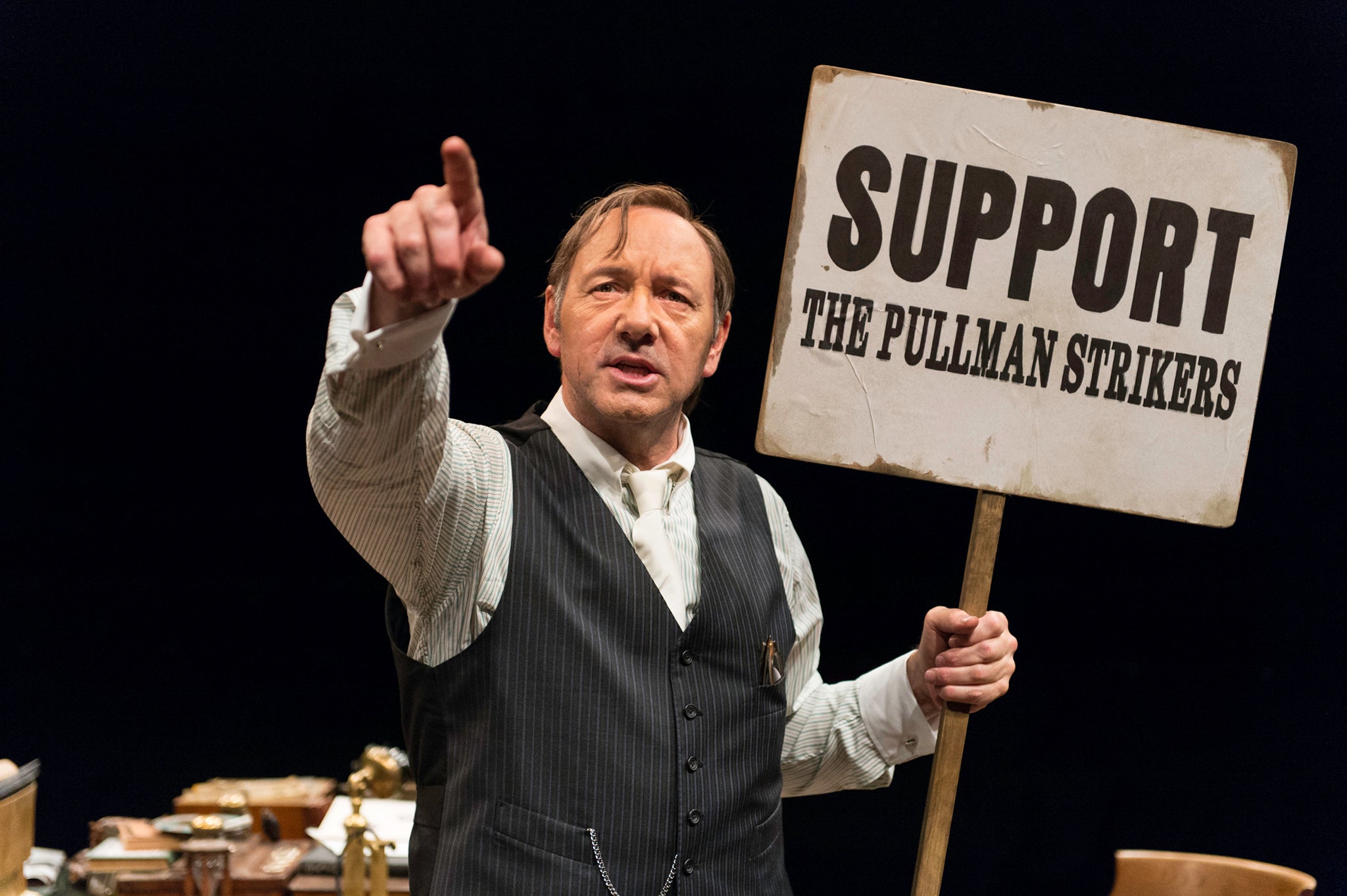Kevin Spacey does justice to a lawyer ahead of his time in Clarence Darrow
On the day I saw it, I had woken up to the news that Utah is to bring back the firing squad


Your support helps us to tell the story
From reproductive rights to climate change to Big Tech, The Independent is on the ground when the story is developing. Whether it's investigating the financials of Elon Musk's pro-Trump PAC or producing our latest documentary, 'The A Word', which shines a light on the American women fighting for reproductive rights, we know how important it is to parse out the facts from the messaging.
At such a critical moment in US history, we need reporters on the ground. Your donation allows us to keep sending journalists to speak to both sides of the story.
The Independent is trusted by Americans across the entire political spectrum. And unlike many other quality news outlets, we choose not to lock Americans out of our reporting and analysis with paywalls. We believe quality journalism should be available to everyone, paid for by those who can afford it.
Your support makes all the difference.Kevin Spacey is currently in a one-man show and he adores the entire cast. This inversion of an old joke may indeed be rooted in reality, because I’ve always thought that Spacey appears quite pleased with himself. But, after watching him portray the celebrated lawyer Clarence Darrow in the eponymous play at the Old Vic, I can only say that he’s got every right to be so.
In his final season as the theatre’s artistic director, Spacey’s virtuoso portrayal of this champion of the poor, the oppressed and the disenfranchised is full of passion and humanity, and is an utterly spellbinding exhibition of the acting art.
There wasn’t much to look at – only Spacey and an old desk, in fact – but that was probably just as well, as there should be no distraction from Darrow’s monologue in a play written more than 40 years ago but still searingly relevant in almost every way.
Darrow, whose most renowned work came in the early 20th century when labourers had no rights and racial prejudice was widespread, defended those whom no one else would defend: workers fighting oppression (he was responsible for winning an eight-hour day for coal miners), striking union members, black men framed for crimes – the list goes on.
The play is full of evocative lines, their power coming from having such a resonance today. In fighting for a fairer deal for railway workers, Darrow might have pre-figured the argument for the nationalisation of public utilities, or indeed for the welfare state. “Government’s ownership of the railroad,” he said, “is much better for the people than the railroad’s ownership of the government.”
Darrow was the product of a time when the justice system was tough on crime, but had no regard for its causes. His words hold true today. “We are building bigger and better prisons, rather than building bigger and better and men.”
Darrow himself was prosecuted, ostensibly for suggesting that “there is no such thing as crime”, believing that criminals were a product of their background, “bound hand and foot by the invisible chains of heredity and environment”. He was proclaimed innocent after an impassioned plea to the jury. We cannot prosecute people for what they believe, he said. We can’t punish the crime of thought. Remind you of anything?
With every turn, there is a contemporary angle to Darrow’s oratory, and none more so than his campaign against the death penalty. And here was a chilling case of reality mirroring art. All life is worth saving, believed Darrow, and in all the 102 cases in which he defended someone threatened with the death penalty, he was successful in getting the sentence commuted to a prison term. There was always a more humane answer, he contended.
On the day I saw the play, I had woken up to the news that Utah is to bring back the firing squad to execute criminals when the lethal injection is not available. I couldn’t quite believe that the most advanced country in the western world would take a step back to another time, but it’s true, and other states may follow suit.
Only last year, America killed 35 of its own citizens. Darrow, had he been alive, would have opposed every one. “The world doesn’t change without trouble,” he said – a man who went looking for trouble, and found it almost wherever he looked. Spacey does him full justice. Go see him if you can.
Join our commenting forum
Join thought-provoking conversations, follow other Independent readers and see their replies
Comments